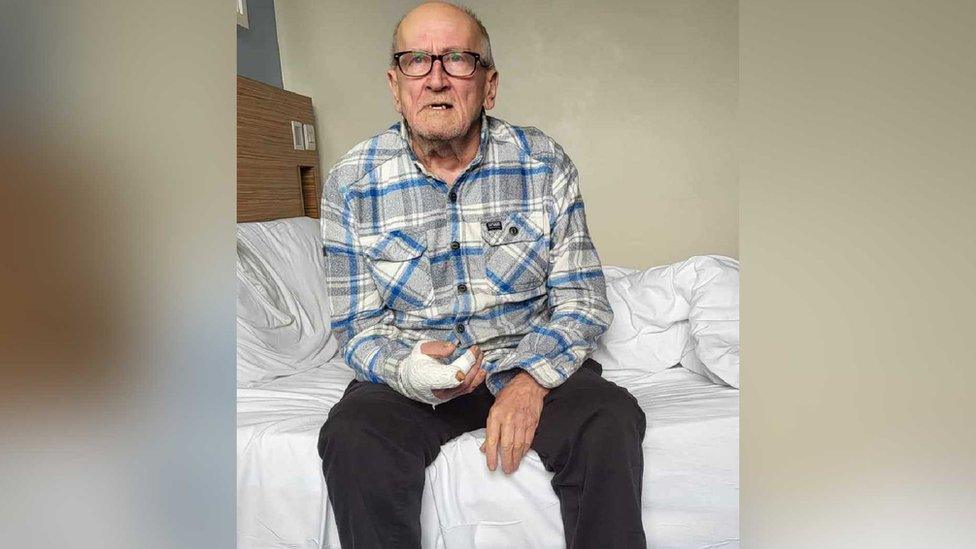Hoarding: Mum on how condition nearly ruined her life
- Published
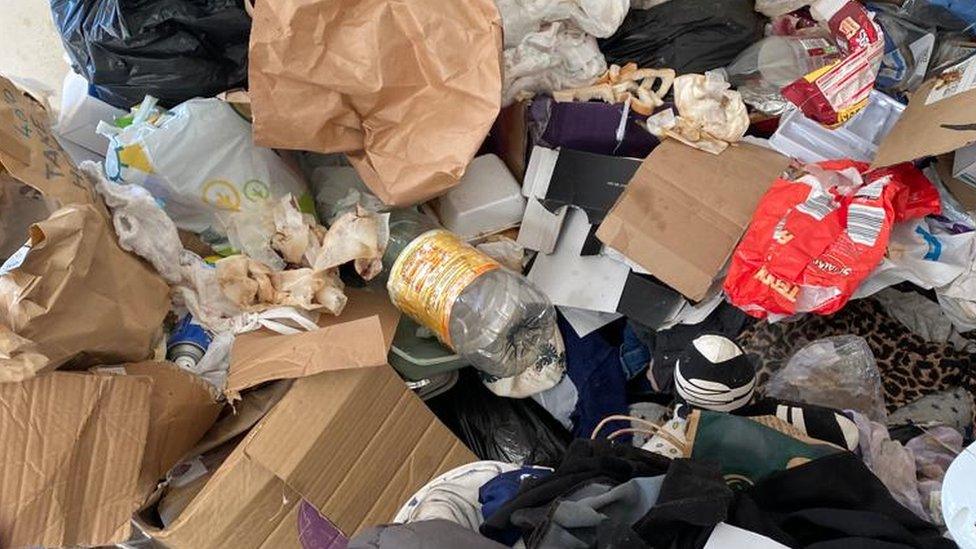
Jenny's home before it was cleaned last year
Millions of people in the UK are believed to be hoarders. Research suggests about three million of us have unhealthy behaviours around keeping hold of clutter. But only a small fraction of those affected ever get help. BBC News speaks to people trying to beat the urge to keep and the groups committed to helping them.
For Jenny, Christmas 2022 was a turning point.
The mother-of-one would often try to avoid her home in the cathedral city of York.
It wasn't that there was a problem with her home, it was what was in there that was the issue.
Jenny (not her real name) had found, kept, collected and stored so many items that where the bedroom, kitchen and living areas should have been there were just boxes and bags stacked from floor to ceiling.
Some of the items the 32-year-old had managed to convince herself she would need again.
Some of the items, like a tyre or myriad plastic bottles, were just there.
Having previously struggled with depression, anxiety and post traumatic stress disorder, she says things spiralled when her son was delivered 10 weeks early.
"I kept all his baby stuff, I just didn't throw anything out," she says.
"When it was at its worst, I avoided my house, I would only go in for the least amount of time."
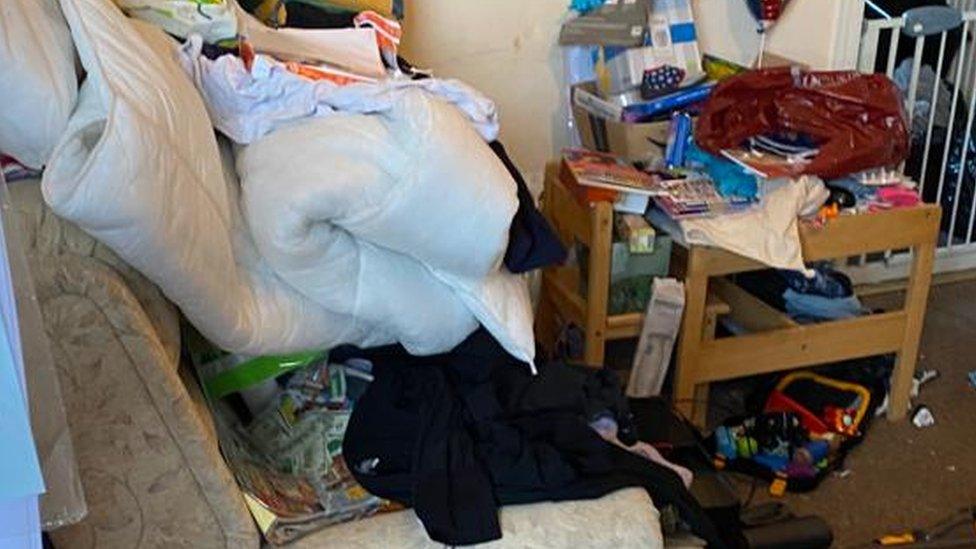
Jenny said she had struggled to part with items ever since her son was born
As her hoarding problem grew bigger, her landlord's patience grew smaller, until in late 2022, she was threatened with eviction.
Michaela Shaw runs the city's Community Bees group, which has helped more than 500 people with hoarding problems since February 2019.
"These people can't go to the bathroom, they can't go to the kitchen," she tells me.
"Nine out of 10 times you find them sleeping at the bottom of the stairs because it's the closest to the door, so when they order things they have someone to say hello to."
The reasons why people hoard can be as eclectic as the items they stockpile, but experts believe they are often rooted in trauma and bereavement.
The NHS also acknowledges that hoarding can be a symptom of an underlying mental health condition, external ranging from anxiety to obsessive compulsive disorder and severe depression.
Michaela and her team were contacted about Jenny and within hours were on hand to help her get rid of the clutter, offering what she calls a "fresh start".
Ms Shaw says clearing homes can take weeks, sometimes even months, and requires patience, trust and a gentle approach.
"Some individuals can say 'right, I want everything in that room gone', others go through every little item with me and push it into different boxes.
"It's very difficult for some to even let go of a piece of paper."
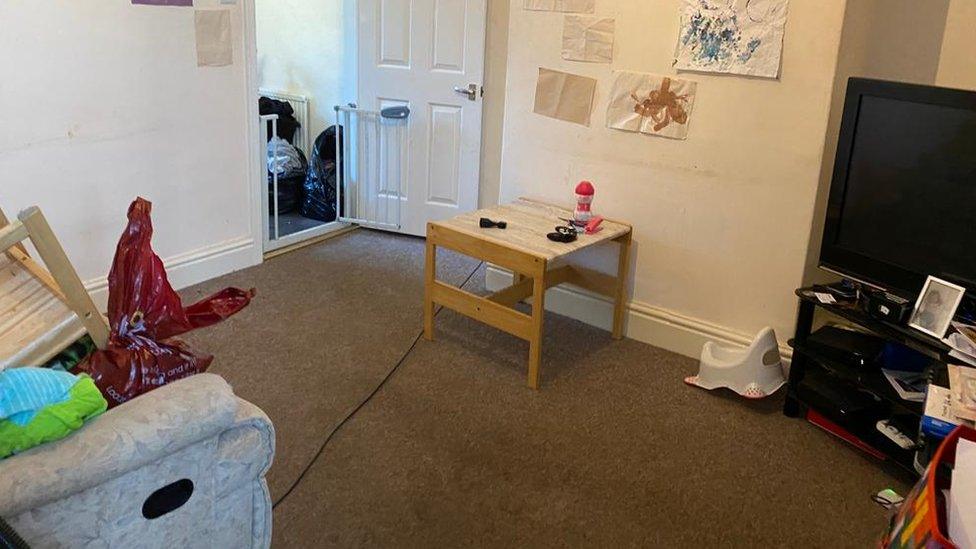
Jenny's home after Community Bees came to help
In her early 30s, Jenny is comparatively young to have attracted attention and managed to get help.
Jon Friend, who works with hoarders at Sheffield Mind Magpies, estimates the average age of his clients is between 50 and 60.
But, he says, that doesn't mean their hoarding behaviour is a recent development.
"In most cases it's been going on years and years, but how long and how quickly it became a hoarder place is hard to judge," says Mr Friend.
He believes most people have the potential to become a hoarder.
"We often talk about it being a sliding scale.
"The nearness to having too much stuff - at what point is it too much stuff you begin to hold onto and not let go of?"
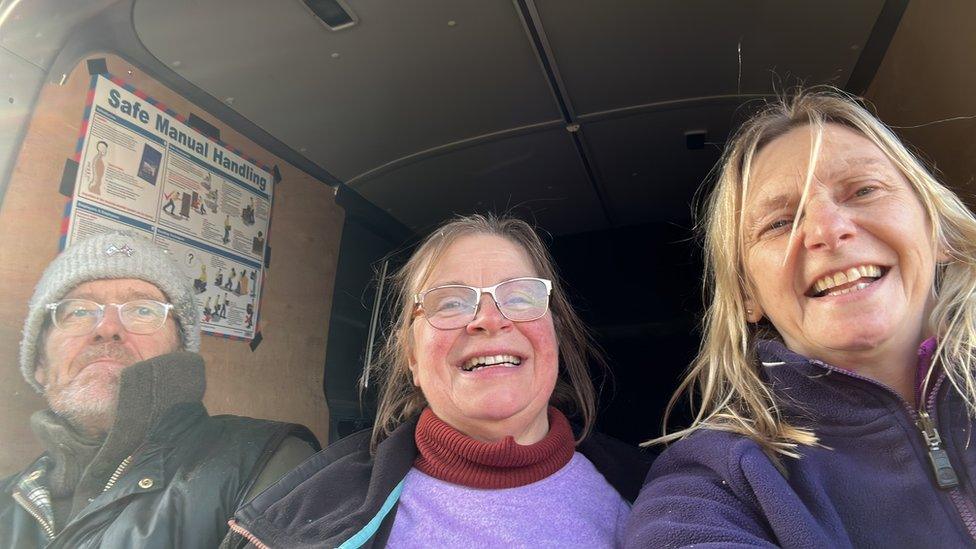
Michaela Shaw (right) and her team help hoarders in York
Following a referral, usually from council workers or the NHS, the South Yorkshire group offer clients six months of one-to-one support alongside group sessions and psychological support.
"We are not trained therapists as such but we are working on their motivation and encouragements and introduce tools and strategies to help break the cycle," says Mr Friend.
"People say they want to change but don't know where to start."
What some people deem untidy is subjective, which is why professionals developed a tool to measure the level of mess in a home.
The so-called Clutter Image Ratings show pictures, external in increasingly messy states with each image assigned a ranking.

If you have been affected by any of the issues raised in this story, you can access more help and support via the BBC Action Line

Various authorities around the world use the tool and so does South Yorkshire Fire and Rescue Service (SYFRS).
Hoarders pose a significant fire risk, not only to themselves but also to their neighbours.
The force is clear it can't stop people hoarding, but wants those who do to remain safe.
Sarah Ellis, a safeguarding officer, says: "When we go to a home we ask 'can you get to plug sockets, if you smoke, can you go outside, do you know where your keys are?'"
According to the service's research, up to 30% of fire deaths across the UK are attributed to homes of hoarders.
Ms Ellis explains: "Domestic fires in homes tend to be contained to the room of origin in 90% of the cases but where there is hoarding, that figure drops to 40%."
She says this is not just because of the higher volume of flammable materials, but because doors are often unable to close due to the number of items blocking them.
The fire service's message to hoarders is to ensure smoke alarms are working and that they have an escape plan.
Decades of hoarding made house 'a no-go area' - a story from 2021
After her "fresh start", Jenny realised her problem had returned three months later when she was unable to get into her own kitchen, her pathway blocked by a stack of boxes.
The first time she needed help, Jenny, shorn of social confidence and fearful of what people may think, had found it hard to speak up.
The social isolation caused by not having friends over for a coffee or her son's little pals running around had made her world much smaller.
This time, although feeling ashamed, she was able to ask for help again.
"I promised myself it wouldn't get bad but it did," she says.
"It felt like I failed myself a little bit."
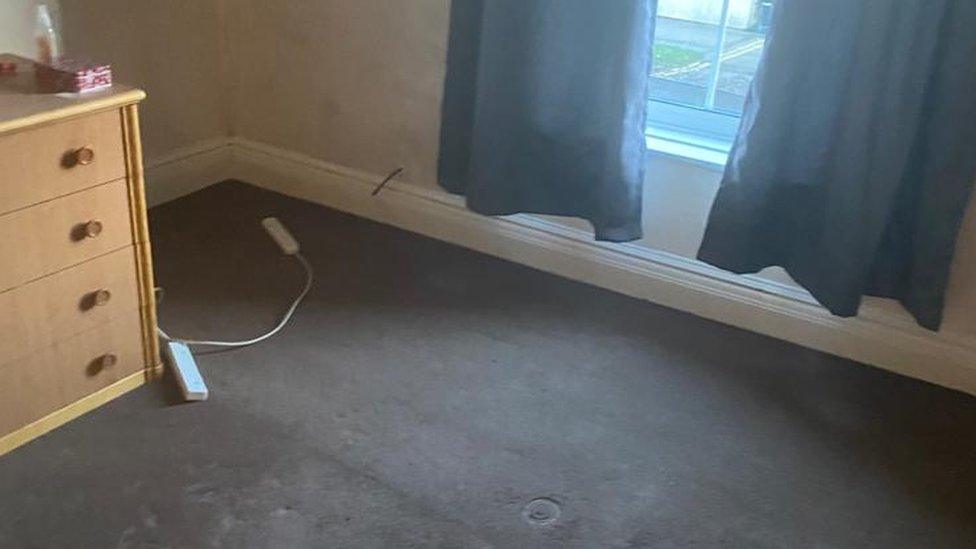
Community Bees helped clear Jenny's place in December 2022
With the help of the Community Bees, Jenny's home was made fit for visitors.
Just before Christmas this year, rather than the threat of eviction, Jenny held her son's first playdate for four years in their home.

Follow BBC Yorkshire on Facebook, external, X (formerly Twitter), external and Instagram, external. Send your story ideas to yorkslincs.news@bbc.co.uk, external.
Related topics
- Published16 May 2021
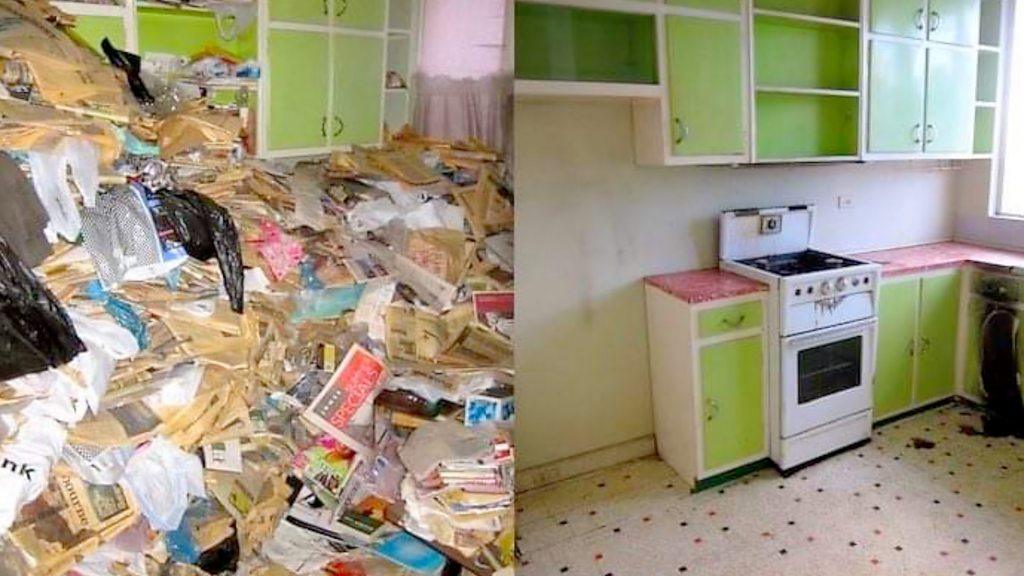
- Published20 May 2023
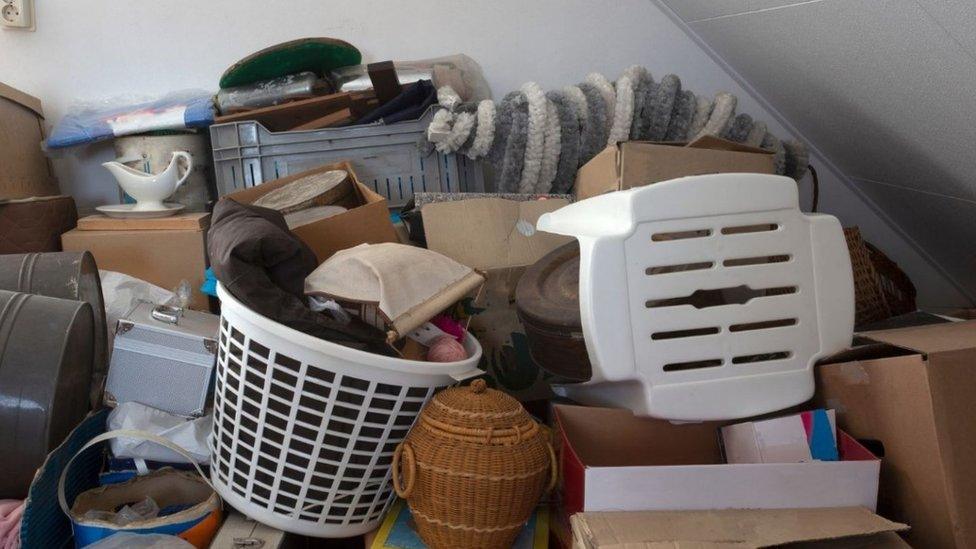
- Published6 November 2023
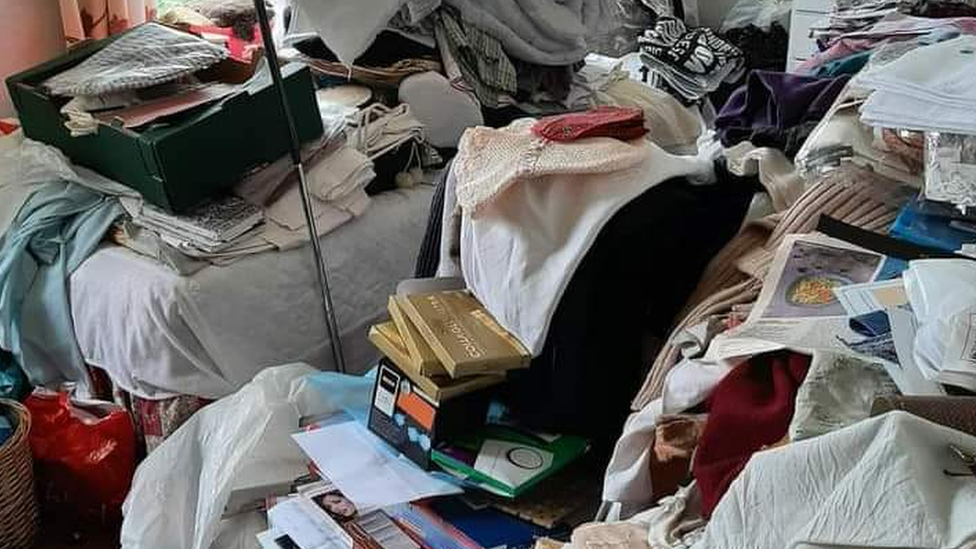
- Published28 October 2023
